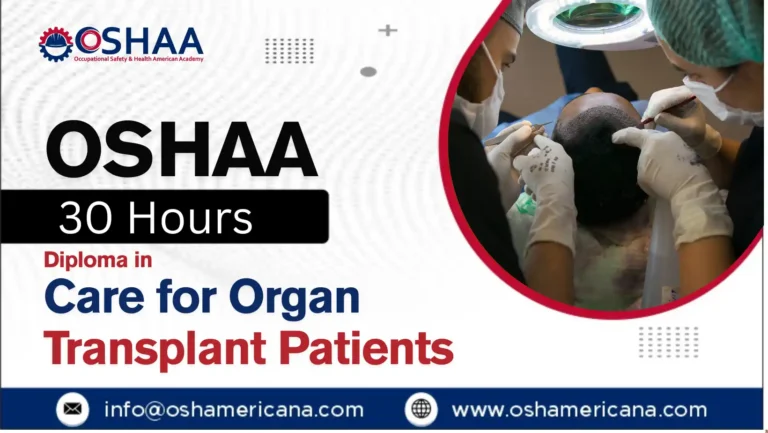Advance your expertise with the OSHAA 30-Hours Professional Diploma in Suicide Prevention – Diagnosis and Treatment. Gain vital skills in assessment, intervention, and care.
The OSHAA 30-Hours Professional Diploma in Suicide Prevention – Diagnosis and Treatment is a specialized program designed to provide professionals with the essential knowledge, practical skills, and evidence-based strategies required to address one of the most pressing global health challenges. This comprehensive diploma equips learners to recognize warning signs, assess risk factors, and implement effective interventions that can save lives. By focusing on both diagnosis and treatment, the course ensures participants are prepared to respond with confidence and professionalism when supporting individuals at risk of suicide.
Suicide prevention has become an increasingly critical area of focus for mental health professionals, healthcare providers, social workers, educators, and community support specialists. With mental health concerns rising worldwide, particularly among vulnerable populations, the demand for trained professionals who can provide timely and effective support has never been greater. The OSHAA 30-Hours Professional Diploma in Suicide Prevention – Diagnosis and Treatment addresses this need by offering a structured, research-driven curriculum that emphasizes early identification, crisis intervention, and long-term care strategies.
Delivered by the Occupational Safety and Health Association of America (OSHAA), a recognized leader in professional training and compliance education, this diploma reflects the highest standards of quality and relevance. OSHAA’s reputation for excellence ensures that learners receive up-to-date, evidence-based instruction that aligns with global best practices in mental health and safety. The program integrates theoretical foundations with practical applications, enabling participants to apply their learning directly in professional settings.
Throughout the OSHAA 30-Hours Professional Diploma in Suicide Prevention – Diagnosis and Treatment, learners explore the psychological, social, and environmental factors that contribute to suicidal behavior. They gain a deeper understanding of how to create supportive environments, apply ethical frameworks, and deliver compassionate care while maintaining compliance with safety and professional standards. The course also emphasizes the importance of communication, empathy, and resilience in managing high-stress situations, ensuring that professionals are fully prepared to handle complex challenges in their roles.
This diploma is particularly valuable for those working in mental health services, hospitals, schools, community organizations, and social care environments. By completing the OSHAA 30-Hours Professional Diploma in Suicide Prevention – Diagnosis and Treatment, participants enhance their professional development, strengthen their ability to provide life-saving support, and contribute to safer, more inclusive communities. The program not only advances individual careers but also supports organizations in meeting compliance requirements, improving safety outcomes, and fostering a culture of care and responsibility.
Ultimately, the OSHAA 30-Hours Professional Diploma in Suicide Prevention – Diagnosis and Treatment is more than a qualification—it is a vital commitment to safeguarding lives, promoting mental health awareness, and ensuring that professionals across sectors are equipped with the skills and confidence to make a meaningful difference. This course empowers learners to combine knowledge, compassion, and compliance in ways that elevate both their professional practice and the well-being of the individuals they serve.
OSHAA 30-Hours Professional Diploma in Suicide Prevention – Diagnosis and Treatment
To enroll in the OSHAA 30-Hours Professional Diploma in Suicide Prevention – Diagnosis and Treatment, learners are expected to meet the following criteria:
1. Age Requirement
- Applicants must be at least 18 years of age to register for the OSHAA 30-Hours Professional Diploma in Suicide Prevention – Diagnosis and Treatment. This minimum age ensures that participants have the maturity, responsibility, and professional readiness required to engage with sensitive subject matter such as suicide prevention, diagnosis, and treatment.
2. Educational Background
- A minimum of a high school diploma or equivalent qualification is recommended for admission into the OSHAA 30-Hours Professional Diploma in Suicide Prevention – Diagnosis and Treatment. While this is the baseline requirement, individuals with higher education in psychology, counseling, social work, nursing, or related healthcare and social sciences will find their academic background advantageous. Advanced education provides a stronger foundation for understanding the complex psychological, social, and environmental factors addressed throughout the course.
3. Work Experience
- Prior professional experience in mental health, healthcare, education, or social services is not mandatory for enrollment in the OSHAA 30-Hours Professional Diploma in Suicide Prevention – Diagnosis and Treatment. However, previous exposure to working with vulnerable populations or individuals facing mental health challenges is highly beneficial. Learners with such experience will be able to connect theoretical knowledge with practical application more effectively. The program is designed to support both newcomers seeking to enter the field and experienced professionals aiming to enhance their qualifications in suicide prevention and crisis intervention.
4. English Proficiency
- Learners must demonstrate the ability to read, write, and communicate effectively in English to successfully complete the OSHAA 30-Hours Professional Diploma in Suicide Prevention – Diagnosis and Treatment. Proficiency in English is essential for understanding course materials, engaging with evidence-based research, and applying regulatory and compliance standards in professional practice. Strong language skills ensure that participants can fully benefit from the program and meet the professional expectations required in international healthcare, education, and social support environments.
The eligibility requirements for the OSHAA 30-Hours Professional Diploma in Suicide Prevention – Diagnosis and Treatment are designed to ensure that learners are well-prepared to succeed in this specialized training. By meeting these criteria, participants position themselves to gain advanced knowledge, practical skills, and professional confidence needed to provide life-saving support, ensure compliance with global safety standards, and contribute meaningfully to suicide prevention efforts across diverse professional settings. This structured approach reflects the course’s commitment to excellence, professional development, and the highest standards of care.
Study Units
Learning Outcomes
Introduction to Suicide Prevention and Its Importance (3 Hours)
- Understand the significance of suicide prevention in mental health care.
- Recognise the impact of suicide on individuals, families, and communities.
- Develop an awareness of the global prevalence and trends in suicide rates.
- Learn the role of healthcare professionals in suicide prevention efforts.
Understanding the Psychological Aspects of Suicide (4 Hours)
- Gain knowledge of the psychological conditions often associated with suicidal behaviour, including depression, anxiety, and personality disorders.
- Understand the cognitive, emotional, and social factors that contribute to suicidal ideation.
- Identify the warning signs and symptoms that may signal an individual at risk of suicide.
- Explore theories and models explaining why individuals may contemplate suicide.
Identifying Risk Factors for Suicide (4 Hours)
- Learn to identify key risk factors for suicide, including mental health conditions, trauma, and environmental influences.
- Understand the role of chronic illness, substance abuse, and family history in elevating suicide risk.
- Develop the ability to recognise warning signs in various age groups and cultural contexts.
- Understand how to assess suicide risk in diverse settings, such as healthcare, social work, and education.
Diagnosing Suicidal Behavior: Key Indicators and Assessment (4 Hours)
- Understand how to assess suicidal behaviour using structured clinical interviews and risk assessments.
- Learn how to distinguish between different levels of suicide risk (e.g., low, moderate, high).
- Develop the ability to identify physical, verbal, and behavioural indicators of suicidal intent.
- Gain the skills to engage individuals at risk in conversations to assess their mental state effectively.
Intervention Strategies for Suicide Prevention (4 Hours)
- Explore various suicide prevention interventions, including crisis intervention and immediate action strategies.
- Understand the importance of creating a safe environment for individuals at risk.
- Learn how to provide support during acute suicidal episodes and refer individuals to appropriate services.
- Develop an understanding of de-escalation techniques and how to manage high-risk situations.
Ethical Considerations in Suicide Prevention and Treatment (3 Hours)
- Understand the ethical dilemmas involved in suicide prevention, including confidentiality and informed consent.
- Learn the importance of respecting autonomy while balancing the need for intervention.
- Explore legal and ethical responsibilities in treating individuals at risk of suicide.
- Gain insight into the challenges of involving families or third parties in suicide prevention efforts.
Suicide Prevention Techniques and Therapeutic Approaches (5 Hours)
- Study evidence-based therapeutic approaches for suicide prevention, including Cognitive Behavioural Therapy (CBT) and Dialectical Behaviour Therapy (DBT).
- Learn about pharmacological treatments and their role in suicide prevention.
- Understand the importance of long-term care and follow-up in reducing suicide risk.
- Gain knowledge of holistic approaches, including mindfulness and stress management techniques.
Engaging Families and Support Networks in Suicide Prevention (3 Hours)
- Understand the importance of involving family members, friends, and support networks in suicide prevention efforts.
- Learn how to communicate effectively with families about suicidal behaviour and mental health issues.
- Develop strategies for supporting families in providing ongoing care and monitoring at-risk individuals.
- Explore the role of community resources in supporting suicide prevention and aftercare.
The OSHAA 30-Hours Professional Diploma in Suicide Prevention – Diagnosis and Treatment provides a wide range of benefits designed to strengthen professional expertise, enhance organizational standards, and ensure compliance with global best practices in mental health and safety. This diploma is highly relevant for mental health professionals, healthcare providers, educators, social workers, and organizations committed to safeguarding vulnerable individuals. By completing this program, learners gain advanced knowledge, practical intervention skills, and professional confidence to address one of the most urgent global health challenges. The course emphasizes regulatory compliance, ethical practice, and professional development, making it a vital qualification for individuals and institutions worldwide.
1. Advanced Knowledge of Suicide Prevention
- Learners gain a comprehensive understanding of the psychological, social, and environmental factors contributing to suicidal behavior. This knowledge enables professionals to identify risks early and apply evidence-based prevention strategies effectively.
2. Expertise in Diagnosis and Treatment
- The OSHAA 30-Hours Professional Diploma in Suicide Prevention – Diagnosis and Treatment equips participants with diagnostic tools and therapeutic approaches to support at-risk individuals. This ensures accurate assessments and effective treatment planning.
3. Regulatory Compliance and Ethical Standards
- The course emphasizes adherence to OSHA-aligned safety and compliance standards, ensuring professionals operate within legal and ethical frameworks. This protects both practitioners and organizations from liability while promoting safe practices.
4. Crisis Intervention Skills
- Participants develop the ability to respond effectively in high-pressure situations, applying crisis intervention techniques that can de-escalate emergencies and save lives. These skills are critical in healthcare, education, and community support settings.
5. Professional Development and Career Growth
- Completing the OSHAA 30-Hours Professional Diploma in Suicide Prevention – Diagnosis and Treatment enhances career opportunities by demonstrating advanced qualifications in mental health and crisis management. It provides a competitive edge in the job market and supports long-term career advancement.
6. Improved Communication and Empathy
- The program strengthens communication skills, enabling professionals to engage with sensitivity and empathy when supporting vulnerable individuals. These skills foster trust, improve outcomes, and enhance professional relationships.
7. Workplace Safety and Risk Reduction
- By training professionals to recognize warning signs and intervene early, the course reduces the likelihood of workplace incidents related to mental health crises. This contributes to safer environments in healthcare, education, and community organizations.
8. Organizational Efficiency and Cost Savings
- Institutions benefit from reduced risks, fewer crises, and improved staff preparedness. The OSHAA 30-Hours Professional Diploma in Suicide Prevention – Diagnosis and Treatment helps organizations save costs associated with emergency interventions and staff turnover.
9. Leadership and Management Skills
- Participants gain leadership competencies that enable them to guide teams, implement safety protocols, and promote a culture of mental health awareness. These skills are essential for managers and supervisors in high-stakes environments.
10. Enhanced Worker Well-being and Productivity
- By fostering a supportive culture and equipping staff with mental health awareness, organizations improve employee well-being and productivity. This creates healthier workplaces and reduces burnout.
11. Emergency Preparedness and Risk Management
- The diploma prepares professionals to handle emergencies with confidence, from immediate crisis response to long-term care planning. This ensures readiness for complex and unpredictable situations.
12. Global Relevance and Recognition
- The OSHAA 30-Hours Professional Diploma in Suicide Prevention – Diagnosis and Treatment is designed with international standards in mind, making it valuable for professionals seeking global career opportunities. Its recognition enhances mobility and credibility across sectors.
13. Contribution to Public Health and Community Safety
- By training professionals in suicide prevention, the course contributes to broader public health goals and community safety. Graduates play a vital role in reducing suicide rates and supporting vulnerable populations.
14. Continuous Improvement and Innovation
- The program encourages reflective practice and ongoing professional growth. Learners are motivated to adopt innovative approaches that improve mental health services and adapt to evolving challenges.
15. Strengthened Collaboration Across Sectors
- Participants learn to work effectively with multidisciplinary teams, including healthcare providers, educators, and social workers. This collaboration enhances the quality of care and ensures comprehensive support for individuals at risk.
The OSHAA 30-Hours Professional Diploma in Suicide Prevention – Diagnosis and Treatment is more than a qualification; it is a transformative program that empowers professionals to deliver life-saving interventions, ensure compliance with global standards, and advance their careers. Its benefits extend beyond individual learners to organizations, communities, and society as a whole, making it an essential credential for anyone dedicated to mental health, safety, and professional excellence.
The OSHAA 30-Hours Professional Diploma in Suicide Prevention – Diagnosis and Treatment is designed for professionals, organizations, and stakeholders who are directly or indirectly involved in mental health, healthcare, education, and community support services. This globally relevant program addresses the urgent need for qualified specialists who can ensure compliance with OSHA-aligned safety standards, promote mental health awareness, and provide life-saving interventions. By focusing on professional development, regulatory compliance, and evidence-based practices, the course equips learners with the expertise required to meet international benchmarks in suicide prevention, diagnosis, and treatment.
1. Mental Health Professionals
- Psychologists, psychiatrists, and counselors play a critical role in diagnosing and treating individuals at risk of suicide.
- The course provides advanced tools for risk assessment, intervention, and therapeutic support.
- Participants gain evidence-based strategies to enhance their clinical practice.
- Training ensures alignment with OSHA compliance and global mental health safety standards.
2. Healthcare Providers
- Doctors, nurses, and allied health professionals often encounter patients experiencing mental health crises.
- The diploma equips them with crisis intervention skills and treatment strategies.
- Learners gain the ability to integrate suicide prevention into patient care.
- OSHA-aligned training enhances workplace safety and patient well-being.
3. Social Workers
- Social workers support vulnerable individuals and families in high-risk environments.
- The course strengthens their ability to identify warning signs and provide timely interventions.
- Participants gain practical skills in community-based suicide prevention.
- Compliance with OSHA standards ensures safe and ethical practice in social care.
4. Educators and School Counselors
- Teachers and counselors are often the first to notice behavioral changes in students.
- The diploma provides strategies for early identification and support of at-risk youth.
- Participants gain skills to create safe, inclusive, and supportive learning environments.
- OSHA-compliant training enhances school safety and student well-being.
5. Community Support Workers
- Professionals working in NGOs, charities, and community organizations engage with vulnerable populations.
- The course equips them with tools to provide effective outreach and crisis support.
- Learners gain confidence in managing emergencies and offering compassionate care.
- OSHA training ensures safe practices in community-based interventions.
6. Human Resource Managers
- HR professionals oversee employee well-being and workplace safety policies.
- The diploma provides frameworks for implementing mental health support programs.
- Participants gain skills to reduce workplace risks and improve staff resilience.
- OSHA compliance ensures organizations meet global workplace safety standards.
7. Law Enforcement and First Responders
- Police officers, paramedics, and firefighters often encounter individuals in crisis.
- The course equips them with de-escalation and crisis management techniques.
- Participants gain the ability to respond safely and effectively in emergencies.
- OSHA-aligned training enhances operational efficiency and public safety.
8. Policy Makers and Government Officials
- Decision-makers shape mental health and safety policies at local and national levels.
- The diploma provides insights into global best practices in suicide prevention.
- Participants gain knowledge to design effective, compliant, and sustainable policies.
- OSHA compliance ensures alignment with international safety and regulatory frameworks.
9. Corporate Leaders and Managers
- Business leaders are responsible for employee welfare and organizational culture.
- The course equips them with strategies to implement workplace mental health initiatives.
- Participants gain tools to reduce absenteeism, improve productivity, and support staff.
- OSHA training ensures compliance with workplace safety and health regulations.
10. Non-Governmental Organizations and Advocacy Groups
- NGOs and advocacy groups work to raise awareness and provide support for mental health.
- The diploma strengthens their capacity to deliver effective suicide prevention programs.
- Participants gain credibility through OSHAA training and certification.
- OSHA compliance enhances organizational reputation and global recognition.
The OSHAA 30-Hours Professional Diploma in Suicide Prevention – Diagnosis and Treatment equips participants across all roles with advanced knowledge, practical skills, and globally recognized certification. By integrating OSHA compliance, evidence-based strategies, and professional development, the program enhances safety, operational excellence, and career advancement. This makes it an essential qualification for individuals and organizations dedicated to mental health, suicide prevention, and professional excellence in line with international standards.







